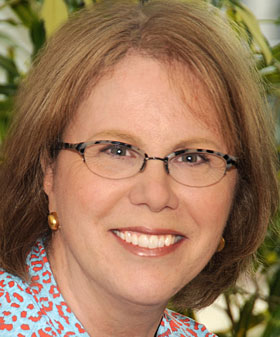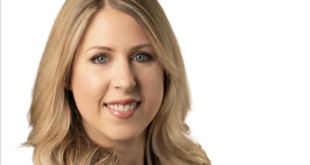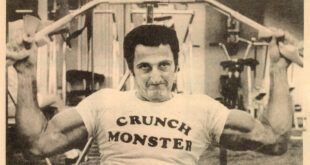
Although Emilia DiMenco has never owned a business, she has spent her entire professional career helping them grow. One of her most satisfying achievements was to lead BMO Harris N.A., as an executive vice president. There, she developed initiatives to support and empower women-owned businesses. In 2010, she became chief operating officer at the Women’s Business Development Center (WBDC) and was recently promoted to president and CEO of the 28-year-old organization, selected by its co-founders and board of directors.
Many would think that leading a non-profit organization during a recession would be an obstacle, but DiMenco turned it into an advantage for the WBDC and its clients. Her first goal was to address the lack of capital, and with her leadership, talent, and tenacity, the State of Illinois Department of Commerce and Economic Opportunity gave the WBDC a grant, allowing them to expand their direct lending program. Another grant from the Deluxe Foundation permitted the WBDC to launch an online/on-demand business education program in English and Spanish for new and emerging entrepreneurs, and more courses are always being added. In partnership with the Illinois Department of Veterans Affairs, DiMenco helped launch the Women’s Vetrepreneurship Program, which provides female veterans with entrepreneurial training, business counseling and direct lending.
Because of DiMenco’s leadership, the WBDC accelerated the development of programs and services that fuel business sustainability and growth. DiMenco’s main goals are to help clients gain access to capital, make more contacts, win more contracts and procure the capacity-building tools they need to expand. “Today most women still start a business to earn an income,” she says. “They make a tremendous investment of their time and money in their business, so they should be able to leverage that asset and monetize it to create personal wealth.”
The concept of financial independence is very important to DiMenco. She immigrated to the United States as a child and grew up in a working-class neighborhood. The household she was raised in was typical for the time, two parents and one income. “My mother’s financial dependence on my father continued throughout his life, making me realize that this was something I did not want,” she says. After earning her MBA, she married, and then divorced with an 8-year-old son. Now, he’s 22 years old and graduated with a mechanical engineering degree from Purdue University in December 2013. He works at Ricardo, an engineering consulting firm, in Burr Ridge. Obviously, as we often say in these columns, the fruit doesn’t fall far from the tree.
A room in DiMenco’s house in Hinsdale has a vintage map outlining the famed bootlike shape of Italy. It was there, in Lucca, nestled in Tuscany, where Emilia, the second of four children, was born in 1954. Her dad, Vincenzo DiMenco, immigrated to America first, detouring through Pittsburgh, where he got a job as a busboy, before joining a sister in Chicago. He began working for the Illinois Central Railroad Co. as a pipe fitter, a job he would have for 30 years.
In December 1957, Emilia; her mother, Iole; and her older brother, Joe, moved to America to join her father. Two younger sisters were born in America.
After a brief stay on the West Side, they settled in south suburban Blue Island, which had a small Italian community and a railroad stop so Vincenzo DiMenco, who didn’t know how to drive at the time, could hop on the train to work.
At home, Emilia DiMenco soaked up the Italian spoken by her mother, who had worked in a paper factory in Italy when she was 21, but then, DiMenco said, “she got married, had babies, and that was the end of it.” She continued living at home after graduating from Eisenhower High School in Blue Island, commuting to the North Side for classes at DePaul University. In 1977, she took a break from DePaul to study international finance at Loyola University Chicago’s John Felice Rome Center, her first time back to Italy since her toddler years.
Three years later, DiMenco graduated with a bachelor’s degree from DePaul. While studying, she held internships and jobs at investment banks but disliked the transactional nature. Deciding instead on commercial banking, she entered a training program at Harris Bank.
The bank covered tuition for DiMenco’s Master of Business Administration degree at DePaul, which she received in 1983. Though, she said, women composed just 20 percent of her MBA class at DePaul, DiMenco estimated that women and minorities made up half of her training class at Harris.
Harris was under pressure to diversify because of a class-action lawsuit filed against it in 1977 by the U.S. Treasury Department, the Office of Federal Contract Compliance Programs and the group Women Employed. The suit alleged race and gender discrimination in the bank’s employment practices. (Other banks at the time, like Merrill Lynch, also faced race and discrimination lawsuits.) A judge ruled against Harris in 1981, awarding $12.2 million in back pay to bank employees.
“If it hadn’t been for that lawsuit,” DiMenco said, “I might never have been hired.”
DiMenco thrived at Harris. She loved the numbers. She loved the customer relationships. She loved that women had begun making inroads in finance.
About every two years, she received a promotion, going from management trainee in June 1980 to commercial banking associate to banking officer to assistant vice president to vice president by the mid-1980s.
In May 1994, DiMenco became the first female senior vice president in Harris’ corporate and commercial bank. In this role, she became particularly vocal on the need for diversity in hiring and training within the bank. Four years later, after a series of acquisitions, DiMenco wrote a thorough report to then-Harris Bank CEO Alan McNally on how Harris could leverage its position as a bank for small businesses. She was made an executive vice president in charge of business banking and put on the management committee.
During her first week at the WBDC, DiMenco experienced her greatest challenge yet. She was diagnosed with breast cancer and soon after she began medical treatment, her sister was diagnosed with cancer and passed due to complications. Despite her own health issues and the having a seriously ill sibling, DiMenco stepped into her role as chief operating officer with grace, dignity and perseverance. In just a short amount of time, the organization’s culture became more productive, collaborative, creative, accountable and service-oriented to meet the needs of the business owners it served in the new economy. DiMenco is now cancer-free
DiMenco says, “The privilege of going to work at the WBDC fulfills my on-going desire to make a difference. The work is a labor of love. I hope everyone, at some point, reaches this stage in life – where they work not because they have to but because they want to, or they start a business just because they can.”
Another example of the best our community has to offer.
 Fra Noi Embrace Your Inner Italian
Fra Noi Embrace Your Inner Italian






